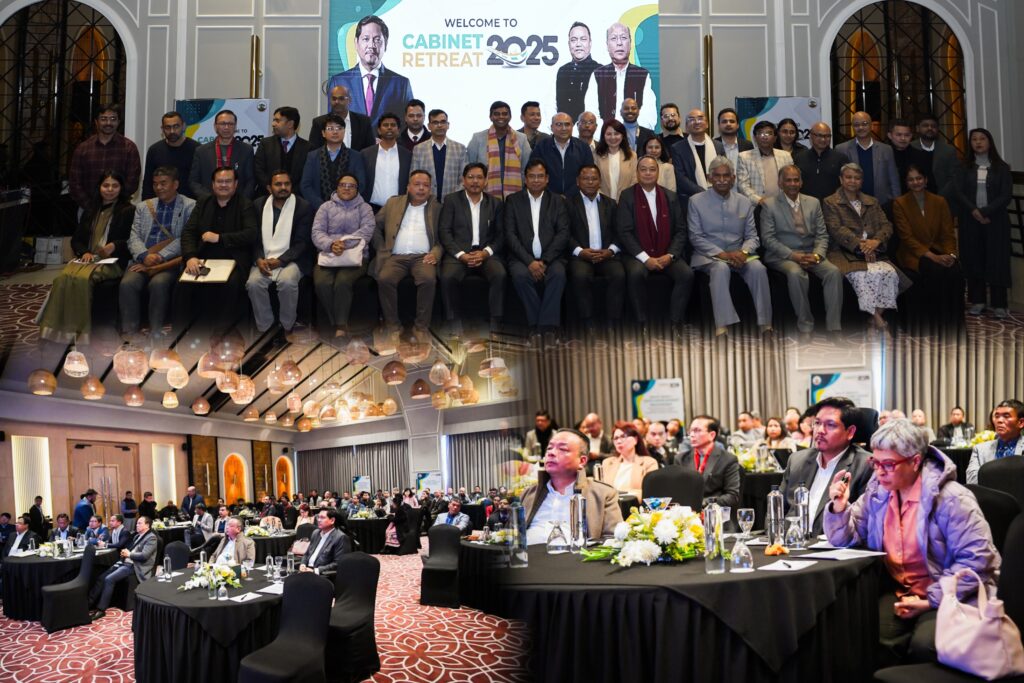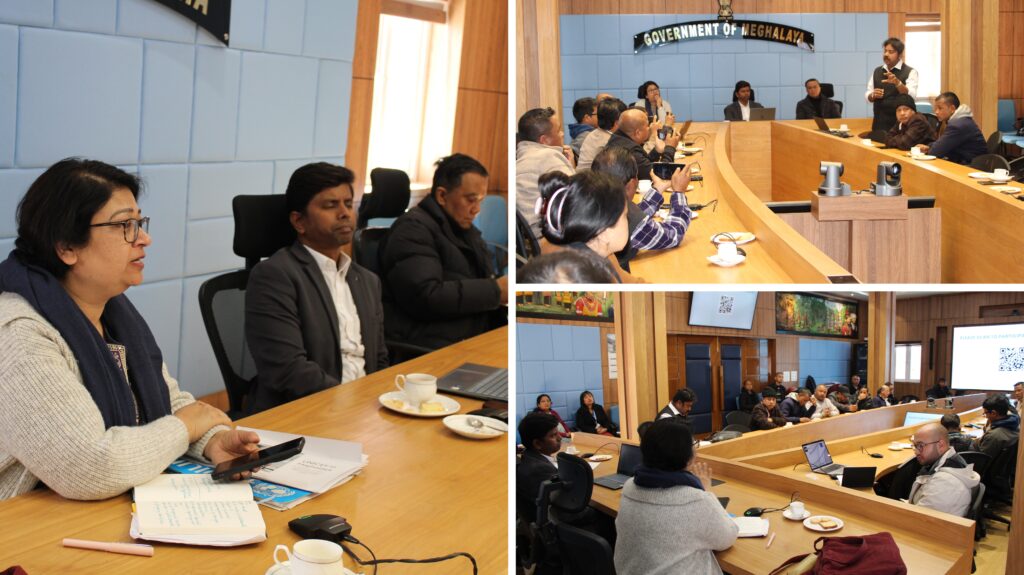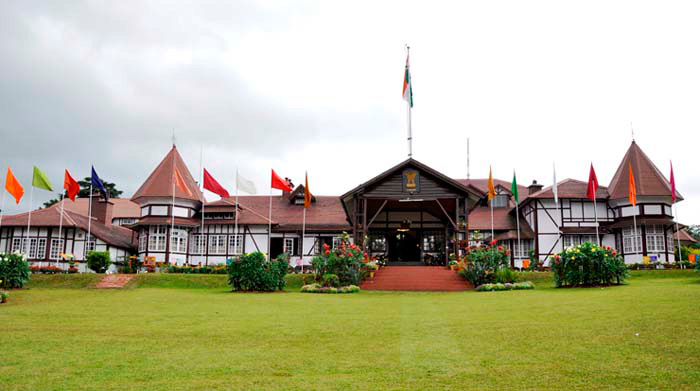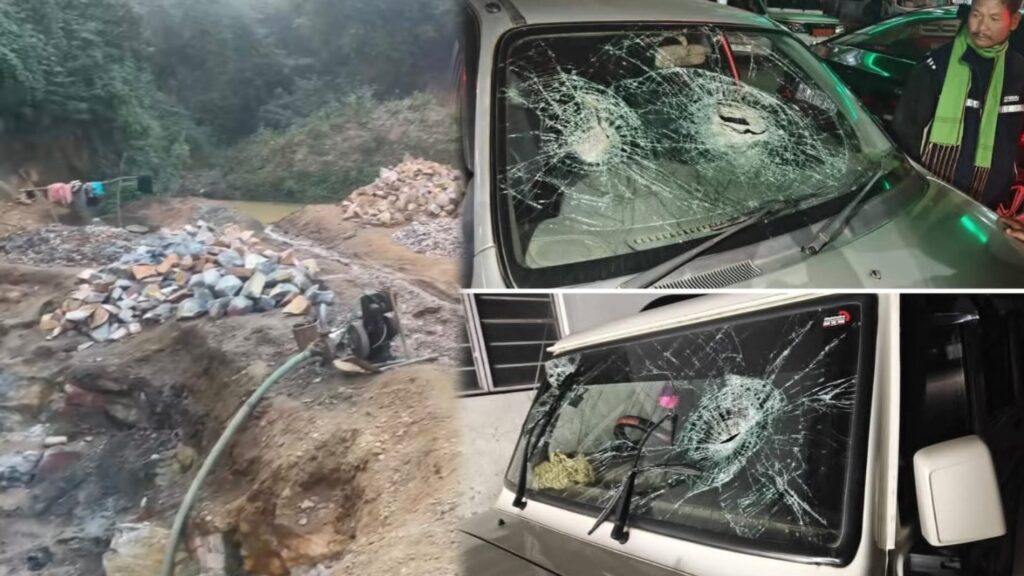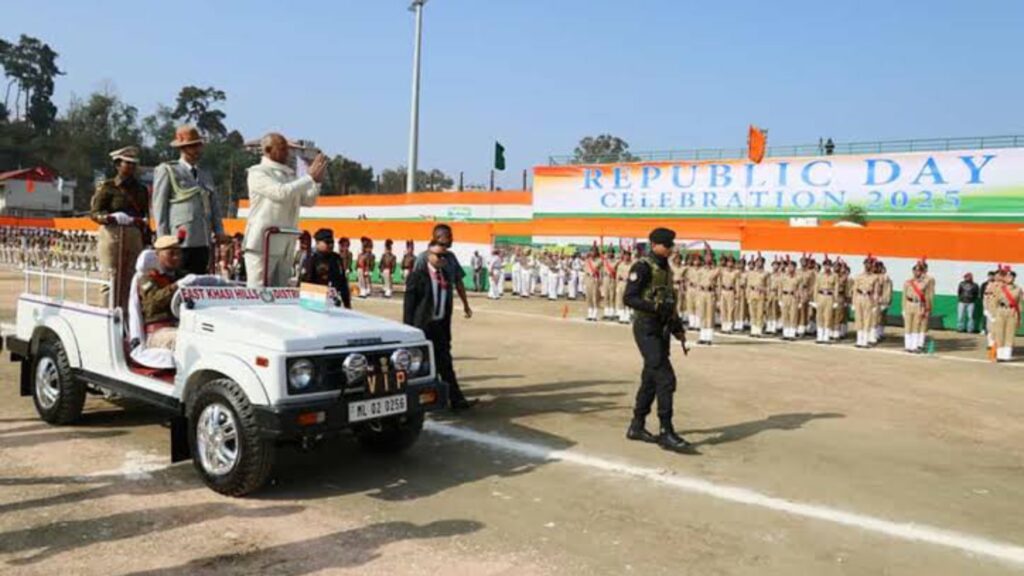Shillong, January 16 : A first-of-its-kind, Cabinet Retreat was held at Sohra with the aim of fostering integration among departments, promoting cross-learning, and deliberation. Attended by Chief Minister, Conrad K Sangma, Cabinet Ministers, and Senior Civil Servants, the retreat comprised of interactive sessions focused on specific themes, aiming to encourage dialogue and collaboration across departments. The retreat was scheduled from January 10 to January 11, 2025.
The retreat, featured thematic sessions on ‘Vision 2032’, ‘Nurturing Social Ecosystem’, and ‘Infrastructure Focus Sector: Power’, conducted by various departments. These sessions aimed to foster dialogue and collaboration across departments, this event proves to be an opportunity to reflect and act towards the state’s Vision 2032.
During the deliberations, achievements and initiatives of key departments were highlighted.
The Animal Husbandry and Veterinary Departmentoperationalized the Multi-Species Abattoir at Mawiong and the Bi-Species Abattoir at Demthring Jowai to enhance meat production and hygiene. Fodder production was increased to 2,720.9 tonnes through expanded fodder farms. The Piggery Mission successfully covered 365 cooperative societies, while the launch of the CM-Elevate Programme has significantly boosted piggery, poultry, and goatery production across the state.
As part of its Vision 2032, the Public Health Engineering Department is working towards achieving universal tap water coverage for all rural households. Under the Jal Jeevan Mission (JJM), more than 5.29 lakh Functional Household Tap Connections (FHTCs) have been provided, improving water accessibility. Infrastructure development includes 3,436 intake structures, 7,797 reservoirs, and 3,366 water treatment plants, ensuring safe and adequate water supply.
The Fisheries Department has made remarkable strides;creating 5,439 hectares of fish ponds, leading to an increase in fish production to 20,000 MT. Conservation efforts include the establishment of 83 sanctuaries, with 26 more identified to protect native fish species. Additionally, the department developed 9 aqua-tourism and recreational fisheries, fostering both economic and ecological benefits.
The Labour, Employment, and Skill Development Department increased ITI seating capacity by over 110%, achieving a 95.91% pass rate in the All India Trade Test 2023. Under Skills Meghalaya, over 20,000 individuals were trained, with 4,900 beneficiaries becoming self-employed. The department also established 12 production hubs, supported 14 colleges with vocational training, and facilitated overseas placements for 56 individuals. 4931 beneficiaries were provided with start-up tools amounting to Rs. 1.97 cr.
In the Forest and Environment Department, a significant milestone was the inauguration of the Meghalaya Biological Park in umtrew, Ri-Bhoi District, enhancing biodiversity conservation. The department established 109 Community Reserves, issued 238 mining and quarry permits, and distributed ₹492.48 lakh as relief for wildlife depredation victims over five years. 2 new Sanctuaries (part of Bahgmara RF and Riat KhwanRF) have been approved for notification by the State Board for Wildlife. It also launched the Meghalaya Forest Fire Information System to strengthen forest protection.
The Power Department has successfully reduced AT&C losses from 32% to 16.12% and distribution transformer failure rates from 5.55% to 4.61%. Over 1.1 lakh smart meters were installed, and 36 substations were augmented to improve power distribution. Urban and rural areas now enjoy over 22 hours of daily power supply, showcasing a significant improvement in energy availability and efficiency.
The Health and Family Welfare Department achieved a 53% reduction in maternal deaths and a 38% reduction in infant deaths between 2020 and 2024. Results-Based Financing (RBF) was implemented across 69 PHCs, 20 CHCs, and other facilities, with ₹50 crore disbursed to enhance healthcare delivery. Additionally, 11 CHCs were upgraded to First Referral Units (FRUs), and ultrasound services were expanded to 60 health facilities across the state.
Focused on nutrition, the Department of Social Welfarereduced Severe Acute Malnutrition (SAM) from 6.5% to 4.7% and Moderate Acute Malnutrition (MAM) from 15.3% to 12.1%. The Meghalaya Early Childhood Development Mission (MECDM) is ensuring holistic development for children aged 0–8 years. Furthermore, the groundbreaking DREAM initiative is tackling substance abuse through community collaboration and awareness programs.
The Agriculture Department improved the production of key crops such as ginger, turmeric, and large cardamom, benefiting nearly one lakh farmers. Infrastructure initiatives include the establishment of over 110 Custom Hiring Centres, 197 Collective Marketing Centres, 166 Processing Units, 120 warehouses, 50 cold storage units and 50 markets. The department also expanded coffee plantations across 900 hectares, boosting agro-economic growth.
In the Water Resources Department the achievements includes creating irrigation potential for 3,059 hectares and developing 48 hydromet stations. Nearly 2,000 water harvesting structures were constructed, benefiting approximately 28,300 farmers. The department also emphasized natural resource management, covering 25,886 hectares of catchment area for conservation.

